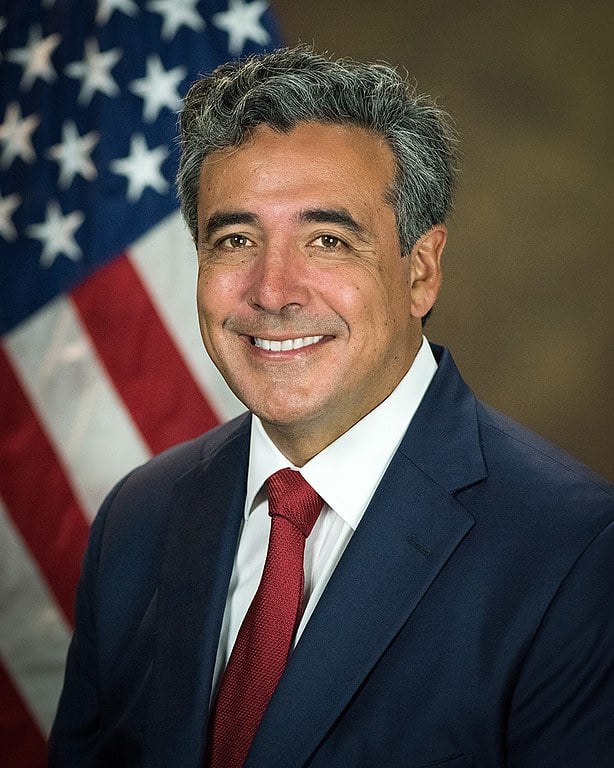Wednesday, President Trump’s now infamous Muslim Travel Ban, headed to the Supreme Court. The Court heard arguments to determine whether the ban is constitutional. While arguing on behalf of the travel ban, Solicitor General Noel Francisco confused Islam, the world’s second largest religion, with a country, leading to Islam is a great country trending on social media.
Solicitor General Francisco said during his closing arguments, “He (President Trump) has made crystal clear that Muslims in this country are great Americans, and there are many, many Muslim countries who love this country. And he has praised Islam as one of the great countries of the world.”
Islam is a Great Country Confusion
The “Islam is a great country” comment left many scratching their heads. Many turned to social media to determine whether Islam is in fact a country. While the mistake may have been a slip of the tongue after a long and rigorous debate, others took the comment as indication that the Trump administration is clueless.
Policy director at the American-Arab Anti-Discrimination Committee, Abed Ayoub, was one such individual. He told the Daily News, “Overall, it’s just another indication of this administration and its view of Islam and the Muslim world.”
He went on to say, “It’s not surprising. The way this administration, the way this President has spoken about Muslim countries has been very problematic and that goes all the way back to the campaign.”
Ayoub, who was present for the hearing, later tweeted:
“The #MuslimBan Supreme Court oral arguments just finished. The Government Attorney closed by saying “Islam is a great country.”
That’s all you need to know.
#NoMuslimBanEver”
Trump Travel Ban
Executive Order 13769, Protecting the Nation from Foreign Terrorist Entry into the United States, known as the Muslim Ban or the Trump Travel Ban on social media, fulfills a key campaign promise for Trump. While on the campaign trail, then Candidate Trump often alleged that terrorists were taking advantage of the refugee system to enter the US. Trump signed the order in January 2017. It was immediately met by protests and legal challenges.
The travel ban blocks entry into the United State for individuals from seven countries: Libya, Iran, Iraq, Somalia, Sudan, Syria, and Yemen. Because these countries are all Muslim majority, the travel ban was immediately decried as unconstitutional for discriminating on the basis of religion.
The brief implementation of the travel ban led to chaos at airports. Taxi and Uber drivers boycotted airports, while more than 700 people were detained. Up to 60,000 visa were provisionally revoked.
How Will the Court Rule?
The Supreme Court heard oral arguments on Wednesday on EO 13769. The Supreme Court is actually analyzing the third version of the original travel ban.
Despite the “Islam is a great country” slip up, it seems the Supreme Court will be siding with the President. With five conservative leaning judges on the bench, many experts anticipate the Trump administration will be permitted to implement the ban.
Justice Kennedy also indicated he will probably side with the Trump administration. Although Kennedy was concerned over the President’s rhetoric towards Muslims on the campaign trail, he seemed to feel the president of the United States does have the authority to bar entry into the Country.
The ban has been labeled as a “Muslim ban” on social media and in activist circles. During the oral arguments, the Trump administration attorneys were clear that they do not see the ban as anti-Muslim, pointing out that the vast majority of the Muslim world is still permitted to enter the US. Activists warn the travel ban could create a slippery slope situation, leading to an abuse of presidential power and a full Muslim ban.
While on the campaign trail, Trump advocated for a full Muslim ban. Solicitor General Francisco claims Trump has no intentions of following through on the Muslim ban, “He made it crystal clear on September 25th that he had no intention of imposing the Muslim ban.”
The justices struggled to determine whether the President’s statements towards Muslims on the campaign trail were relevant to the case or qualified as animus. They also questioned the Court’s authority in determining what can be done in the interest of national security.
A final decision on the travel ban will not be reached until late June.




